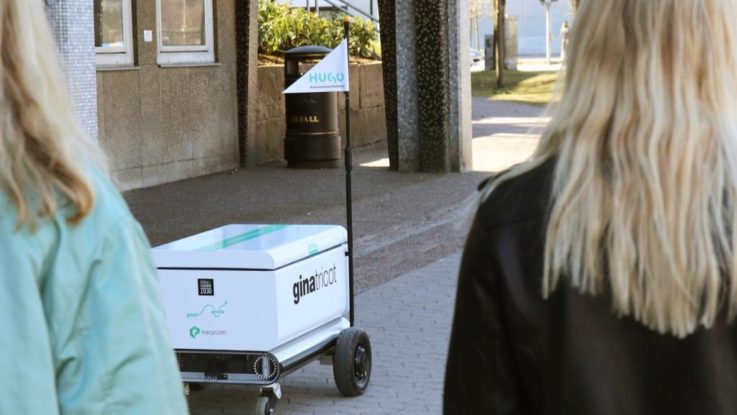
Hugo – a self-driving autonomous robot delivery vehicle – will be tested in the city of Boras, Sweden. The test run will explore how the deliveries and returns of goods can be streamlined, made more customer-focused, and contribute to sustainable development and a more attractive city center.
“Hugo creates opportunities for new types of trade and sharing economy because it can move among pedestrians, can be driven outside normal working hours and runs autonomously. The carbon footprint is also 500 times smaller than for a light truck. This can also contribute to more attractive city centers because fewer distribution vehicles are needed in the city center, people can get food and other necessities delivered to them easier and cheaper,” explained Carl Berge, who runs Hugo Delivery, the creator of the delivery robot.
HUGO – which stands for “here you go” – aims to tackle the problems associated with the last mile in the logistics chain. The last mile of delivering packages is known to be a costly, time consuming, and unsustainable part of the value chain of consumer goods. The vehicle, which consists of a base platform and an adaptable cargo box, can move at speeds of up to six kilometers (~3.7 miles) per hour and can transport packages of up to 100 kilos (220 pounds). Its sensors allow it to stop and navigate around any obstacles it encounters. It is electric battery driven and emission free.
The delivery robot trial will also examine its impact on emission levels in the city, and if it can enable more efficient package returns, reduce the need for packaging materials, and provide efficient transport outside traditional opening hours.